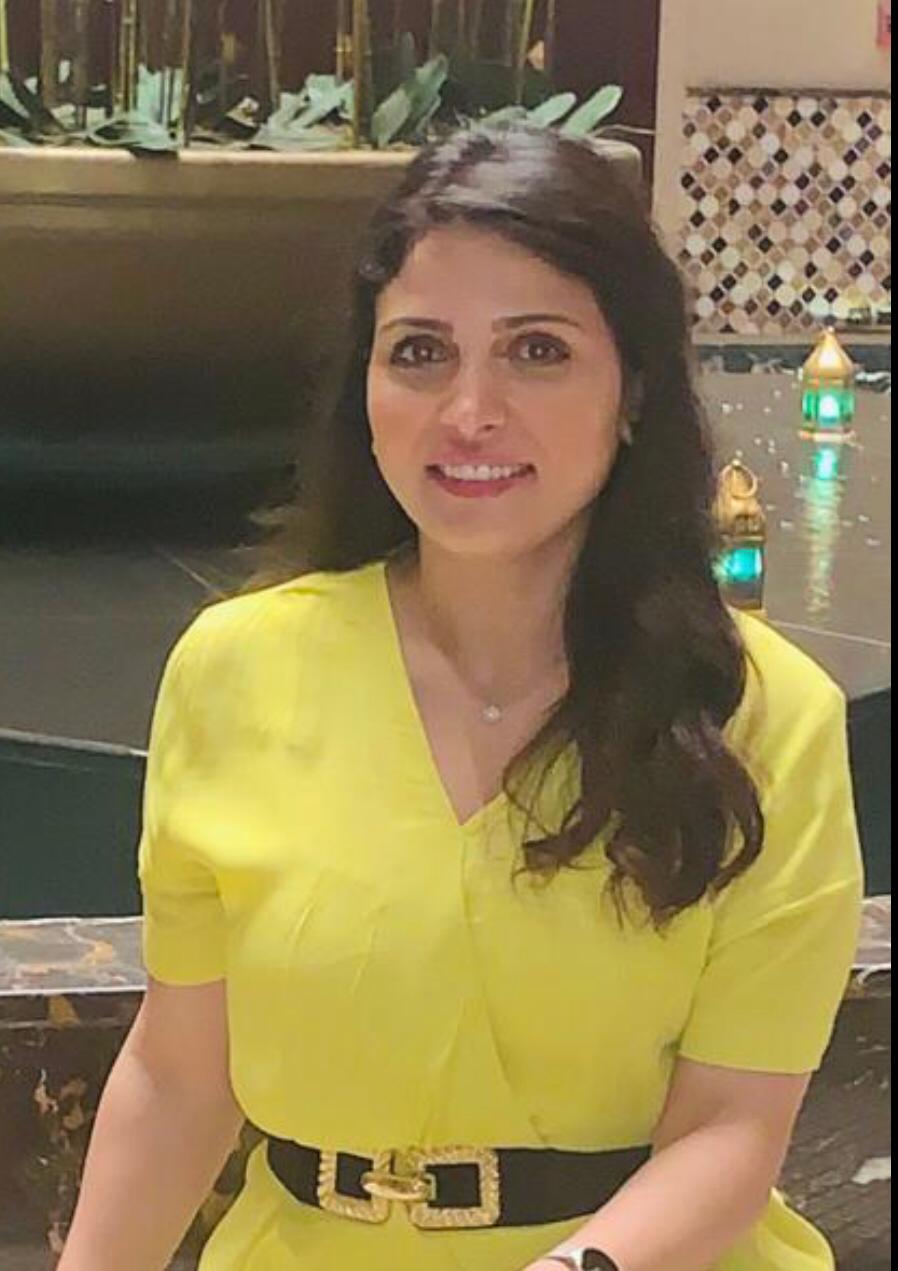في عام ٢٠١٠، قدّم المخرج الأميركي "أوليفر ستون" النسخة الثانية من أفلامه حول البورصة الأميركية "وول ستريت، المال لا ينام أبدا". وعلى الرغم من أن هذا الفيلم لم يحظ بذات الشهرة التي حصدها الفيلم في جزئه الأول عام 1987، إلا أن ستون نجح في أن يُدخل المشاهد في ردهات متاهة بورصة "وول ستريت"، من خلال نسج سيناريو محبك حول شخصية مضاربة في بورصة نيويورك تسعى للحصول على المال والسلطة مهما كان الثمن، في تشخيص لعالم المال البارد والقاسي الذي لا يعترف إلا بلغة الحسابات والمؤشرات.
اختيار ستون تصويب عدسة كاميرته تجاه بورصة "وول ستريت" لم يكن اعتباطيًا؛ فهي تمثل معقل الرأسمالية الأميركية، وقلب صناعة المال في أميركا والعالم. وارتبط اسمها بأحداث صنعت تاريخ اقتصاد العالم المعاصر، وتاريخ الصحافة الاقتصادية.
يربط الكثير من الخبراء الاقتصاديين، بروز الصحافة الاقتصادية بأزمة "وول ستريت" آواخر عشرينيات القرن الماضي، والتي أحدثت تحولًا حقيقيًا في أفق الصحافة، ما دفعها لاستحداث مجال جديد يتخصص بالاقتصاد ويرتكز على تحليل تعاملات سوق المال والأعمال وما يصاحبها من بيانات وأرقام. هكذا بدأت الصحافة الاقتصادية تحتل أهمية كبرى في الوسط الصحفي شيئًا فشيئًا، مع التأكيد على أن نشأة وكالات الأنباء العالمية الكبرى قبل أكثر من قرن ونصف القرن، ارتبطت أساسًا بنشر الأخبار الاقتصادية من خلال تقديم الخدمات الاتصالية.
إذ إن وكالة "رويترز" التي تأسست على يد رجل الأعمال الألماني "بول جوليوس رويتر" عام 1851 بلندن، اقتصرت في بداياتها على بث أخبار قطاع المال، إلا أنها بدأت بالتوسع عام 1858 نحو تغطية الأخبار العامة (1). بعدها بادر الصحفيون "تشارلز داو" و"إدوارد جونز" و"تشارلز بيرغستربسر" سنة 1882 إلى تأسيس صحيفة "وول ستريت جورنال" الأميركية، التي تُعدّ الآن واحدة من أهم الصحف المتخصصة في المال والأعمال في العالم.
الصحافة الاقتصادية عربيًا
يقول رائد الصحافة الأمريكية الصحفي "جوزيف بوليتزر": "لا توجد مهنة في العالم يستطيع الإنسان أن يحسّن أداءها، دون أن يؤهل لها التأهيل الكافي" (2).
وحسب كتاب الإعلام المتخصص لمؤلفه السوري "أديب خضور"، فعلى الصحفي المتخصص أن يتلقى تكوينًا عامًا يتعلم فيه أساسيات الإعلام ومبادئه، ثم ينتقل إلى مرحلة الإعلام المتخصص، حتى يتلقى تكوينًا معمقًا في المجال الذي اختار التخصص فيه. كما أن الصحفي المتخصص مطالب بالتطور ومواكبة المستجدات سواء المتعلقة بالموضوع أو الوسيلة (3).
فهل يتلقى الصحفي الاقتصادي العربي تكوينًا في مجال تخصصه؟
رئيس القسم الاقتصادي بقناة الجزيرة "حاتم غندير"، أوضح في حوار مع "مجلة الصحافة"، أن المؤسسات الصحفية في الوطن العربي، تعتمد على مزيج من الصحفيين مُنحوا بعض المعارف الاقتصادية للعمل في المجال الاقتصادي، أو على اقتصاديين تم تزويدهم ببعض الأسس المهنية لممارسة الإعلام. مشيرًا إلى أن عدد الصحفيين المتخصصين الذين درسوا الصحافة الاقتصادية لا يزال قليلًا جدًا مقارنة بنظرائهم في الصحافة الغربية.
وحول التحديات التي تواجه الصحافة المتخصصة في الوطن العربي، أضاف غندير، أن الصحافة الاقتصادية في المنطقة ما زالت ناشئة وتحتاج إلى توجيه أكثر ومساحة وحرية أكبر، حتى تستطيع أن تقدم خدمة اقتصادية متوازنة، تضع حدودًا فاصلة بين الإعلان والخبر.
كما أن اللغة الصحفية المستخدمة في الصحافة الاقتصادية تشكل هي الأخرى حاجزًا كبيرًا بين الصحفي والمتلقي الذي ما زال يعتبرها لغة نخبوية لا تترجم انتظاراته على أرض الواقع، لذا يجب أن تخرج اللغة الاقتصادية من جمودها حتى تلعب دورًا أساسيًا وفاعلًا في تثقيف المواطن العربي وتبليغه بكل المعلومات والتعاملات التي يمكن أن تفيده في حياته المعيشية، نظرًا لأن المصطلحات الاقتصادية الحديثة لم تحضَ بالاتفاق بين اللغويين العرب، مما يفسر ربما غياب معجم لغوي اقتصادي موحد بين بلدان المشرق والمغرب العربي، وفقًا لغندير.
وتشكل طبيعة الجمهور المستهدف، بعض الأحيان، عاملًا مؤثرًا في اختيار لغة الخطاب، ففي بلدان المغرب العربي نجد تجارب لصحف اقتصادية تنشر باللغة الفرنسية، نظرًا لكون تلك الصحف موجهة بشكل رئيس إلى جمهور رجال أعمال "فرانكفونيين" انطلاقًا من العدد الكبير نسبيًا للشركات الفرنسية في هذه الدول.
وفي الوقت الذي لا تحتل فيه الصحافة الاقتصادية الأولوية في المنظومة الصحفية العربية، ولا تحصد جمهورًا واسعًا، مقارنة بالصحافة السياسية أو الرياضية، تفرد القنوات التلفزيونية والصحافة المكتوبة الغربية حيزًا مهما للاقتصاد، لأنه يشكل مادة أساسية للجمهور الغربي على اختلاف طبقاته.
ويمكن ملاحظة ذلك خلال الانتخابات الأمريكية الأخيرة، حيث ركّز الرئيس الأميركي -المرشّح حينها- "جو بايدن"، في سباقه نحو رئاسة الدولة الأقوى اقتصاديًا في العالم، على تقديم خطته الاقتصادية المفصلة التي تجاوزت 2.2 تريليون دولار، من أجل كسب ثقة المواطن الأمريكي بصرف النظر عن اختلاف توجهاته السياسية.
الصحافة والاقتصاد.. علاقة تكامل؟
لا تقتصر العلاقة بين الصحافة والاقتصاد في العالم الغربي على مفهوم "الصحافة الاقتصادية" بصورتها المتخصصة؛ بل يشكلان معًا دائرة متكاملة، فالاقتصاد جزء من صناعة الصحافة، والصحافة لا يمكن عزلها عن صناعة الاقتصاد.
في اليابان، يتجاوز التوزيع اليومي لصحيفة نيكاي (نيهون كيزاي شيمبون) قرابة 2.8 مليون نسخة يوميًا، ما جعلها واحدة من أكثر الصحف قراءة بين أوساط رجال الأعمال في اليابان )4). قوة الصحيفة التي ظهرت سنة 1876 في شكل منشور يهتم بأسعار السلع المحلية والعالمية أخذت في التطور بتحولها لجريدة يومية عام 1885، إلى أن تكفلت منذ سنة 1950 بحساب قيمة مؤشر نيكاي -المؤشر الرئيس لبورصة طوكيو- إذ تجاوزت الصحيفة دورها الإخباري لتصبح فاعلًا أساسيًا في اقتصاد يعتبر من بين أقوى الاقتصادات العالمية (٥).
نجاح الصحيفة التابعة لشركة نيكاي في بلاد "الشمس المشرقة" دفع الشركة لخوض تجربة استثمارية عام 2015، باستحواذها على ملكية صحيفة "فاينانشال تايمز" البريطانية والتي تعتبر ثاني صحيفة اقتصادية في العالم بعدد توزيع نسخ يومي يتجاوز المليونين (٦).
وعودة إلى الولايات المتحدة الأمريكية، تفرض صحيفة "وول ستريت" نفسها في ليس بين الصحف المتخصصة فحسب، بل تعتبر الأكثر طباعة بين جميع الصحف الأمريكية. ففي الربع الأول من سنة 2020 حققت معدل توزيع يومي بلغ 994,600 نسخة، في الوقت الذي لم تبلغ فيه بقية الصحف حاجز الـ 500 ألف نسخة يوميًا (صحيفة USA Today قرابة ٤٨٦ ألف نسخة وصحيفة The New York Times بقرابة ٤١٠ آلاف نسخة) (٧).
وتعتبر صحيفة "وول ستريت" من أكثر الصحف تتويجًا بجائزة "بوليتزر" -٣٧ جائزة- التي تقدمها سنويًا جامعة كولومبيا بنيويورك، وتعد هذه الجائزة من أرفع الجوائز الممنوحة للصحفيين الأمريكيين، وتوصف إعلاميًا بأنها "أوسكار الصحافة" (٨).
مواكبة التطور الرقمي
إن التحدي الاقتصادي الذي تواجهه أي مؤسسة إعلامية رهين لمدى انخراطها في الثورة الرقمية، والتي بشرت بإعلام جديد تغيرت فيه اقتصاديات صناعة الإعلام. حيث يقول مدير معهد رويترز "راسموس كليس نيلسن" إن "العنوان الرئيسي هو أننا نشهد تحركًا متسارعًا تجاه الوسائط الرقمية وأنواع مختلفة من المنصات" في إشارة إلى أن تفشي فيروس كورونا أدى إلى زيادة كبيرة في استهلاك الأخبار.
لكن الاضطراب الاقتصادي الذي رافق الجائحة أجبر المؤسسات الإخبارية على تسريع تحولها نحو الرقمنة، عبر زيادة الإيرادات الرقمية إلى حد بعيد وبسرعة كافية لتعويض الانخفاض الحتمي في عائدات الطباعة (٩).
ومن بين التجارب الصحفية الناجحة في هذا التحدي نذكر مجلة "الإيكونيميست" البريطانية التي تفوقت على معظم المجلات الاقتصادية العالمية، حيث وصل عدد متابعيها على تويتر إلى أكثر من 25 مليونًا، ووضعت أمامهم نسخة رقمية تحت اسم "The Economist Espresso" وهي عبارة عن تغطية كاملة لأخبار الأعمال التجارية والمالية (١٠).
كما خصصت مجلة "فوربس Forbes" المشهورة بتصنيفاتها لأغنى أغنياء العالم ومراقبة نمو المؤسسات والشركات المالية، والتي يتجاوز عدد متابعيها على تويتر 16 مليونًا حول العالم، شبكة رقمية جديدة لرائدات الأعمال "ForbesWomen" في إطار الخط التحريري الجديد الذي اعتمدته المجلة في السنوات الأخيرة ليكون أكثر حداثة وقربًا من القراء والمنخرطين (١١).
أما مجلة "Money" الاقتصادية الأمريكية، فهي متاحة الآن فقط في شكل رقمي، وتتيح للمستثمرين الوصول إلى موضوعات تشمل الاستثمار والادخار والتقاعد والضرائب، كما تقدم نصائح عملية حول إدارة الأموال (١٢).
الصحافة الاقتصادية في الغرب عاشت مراحل تطور مختلفة، تعايشت في جلّها مع الموضوعات والأدوات المتاحة إلى أن بلغت في العصر الرقمي مرحلة التأثير الاقتصادي الأكبر، مستفيدة من أرضية اقتصادية خصبة وفرت لها مقومات النجاح. بينما الصحافة الاقتصادية العربية محدودة الأهمية، لأن الاقتصاد ربما لا يشكل أولوية للمواطن العربي وإنما "السياسة" هي الأهم، الأمر الذي يفسر وضع صحافة المال والأعمال في العالم العربي.
وفي حال لم تصل الصحافة الاقتصادية لأهدافها المرسومة، والمتمثلة أساسًا في نشر الوعي والثقافة الاقتصادية بين شرائح المجتمع، والعمل على ربط رجال الأعمال والاقتصاد والمؤسسات بعضهم ببعض وبالجمهور كذلك. ولا يزال دورها مقتصرًا على الإخبار دون الانتقال إلى مرحلة التحليل والاستقصاء.
المراجع:
1 -
https://www.thomsonreuters.com/en/about-us/company-history.html
2 - خليل صابات: الصحافة رسالة واستعداد وفن، دار المعارف، الطبعة الثانية مصر،1967، ص46
3 - أديب خضور: الإعلام المتخصص المكتبة الإعلامية، الطبعة الثانية، سوريا2005، ص (47-43)
4 - https://www.wsj.com/articles/BL-263B-5370
٥- https://www.nikkei.co.jp/nikkeiinfo/en/corporate/history/
٦ - FT – About Us
٨- https://www.pulitzer.org/prize-winners-by-year/2019
٩-- https://www.reuters.com/article/instant-article/idCAKBN23M373
١٠- https://www.economist.com/newsbook/2014/11/06/our-new-daily-edition-for-smartphones
١١- https://www.forbes.com/forbeswomen/?sh=482553b2621e
١٢-Top 7 Financial Magazines Smart Investors Should Read (investorjunkie.com)














![Palestinian journalists attempt to connect to the internet using their phones in Rafah on the southern Gaza Strip. [Said Khatib/AFP]](/sites/default/files/ajr/2025/34962UB-highres-1705225575%20Large.jpeg)


























